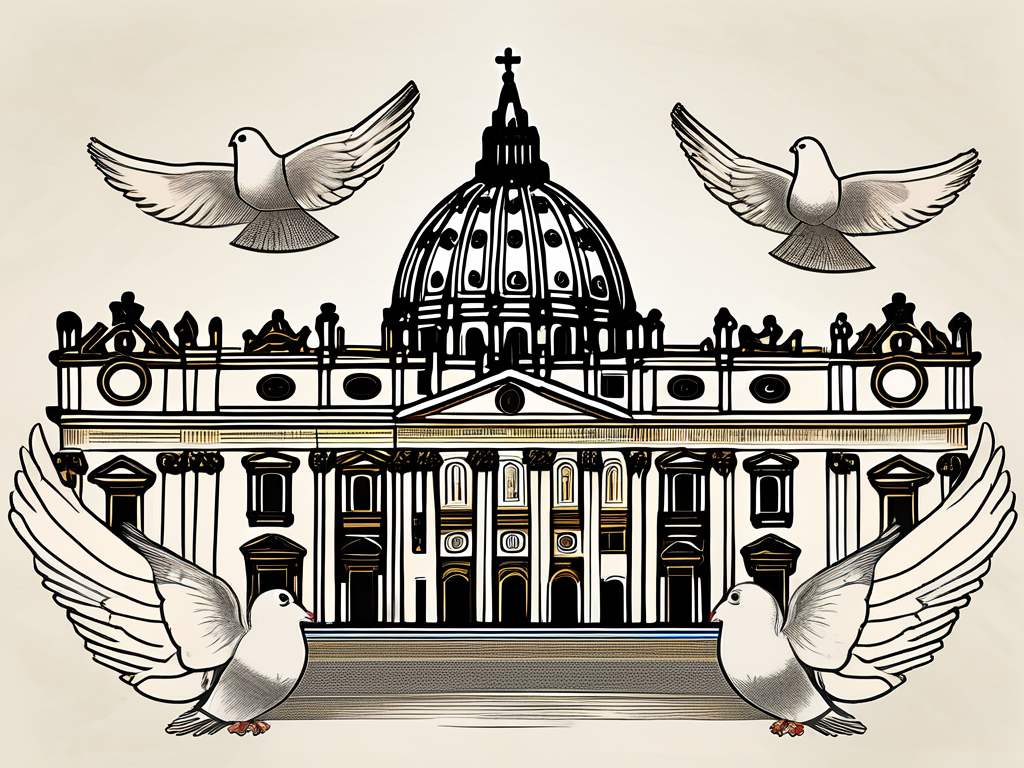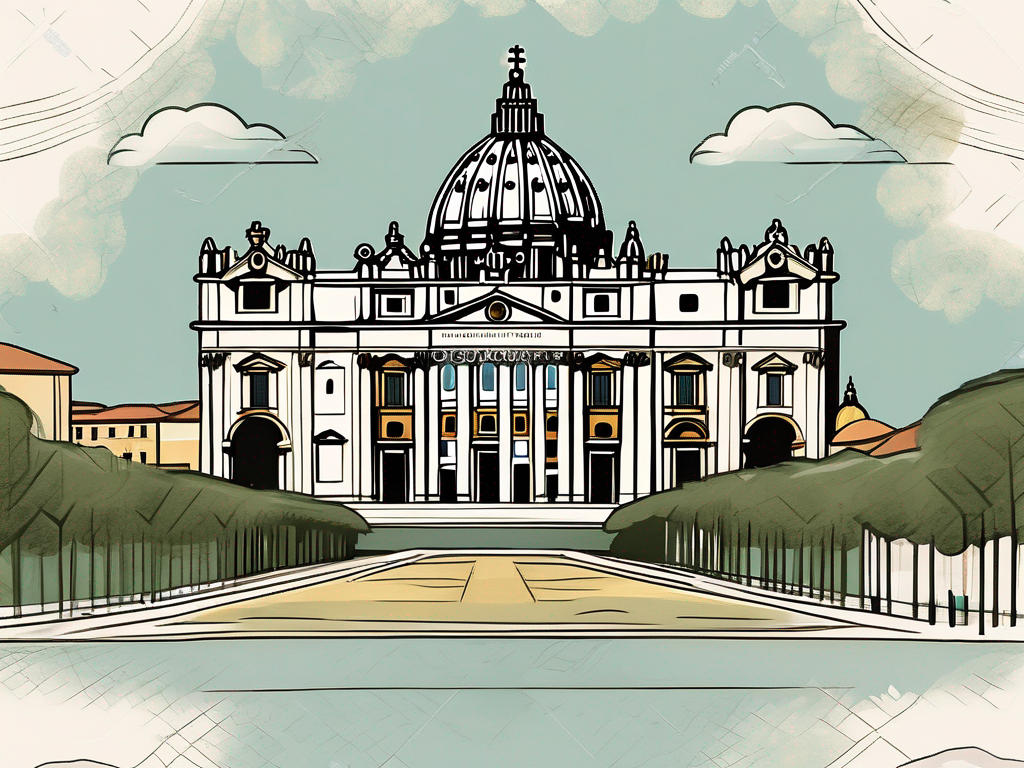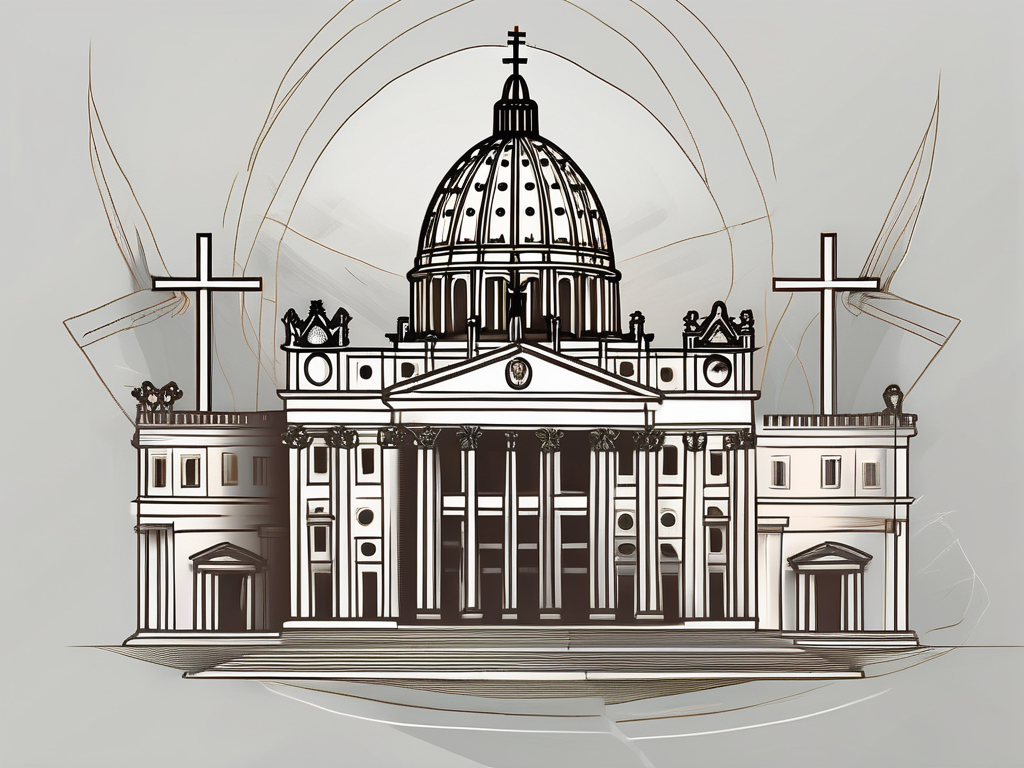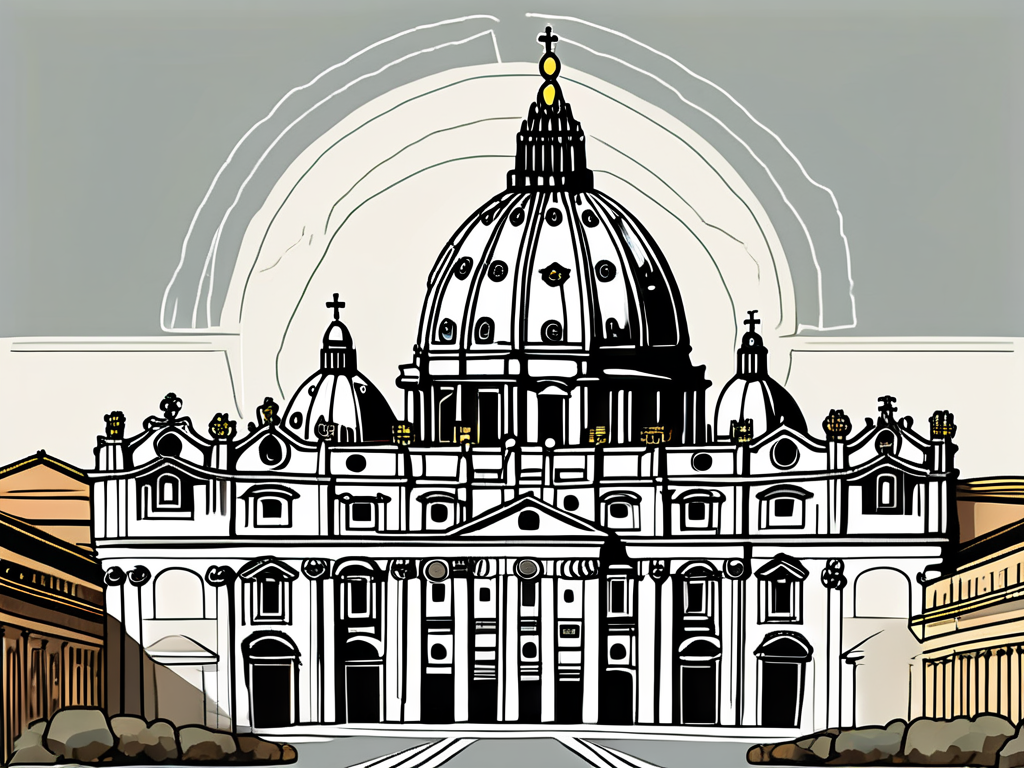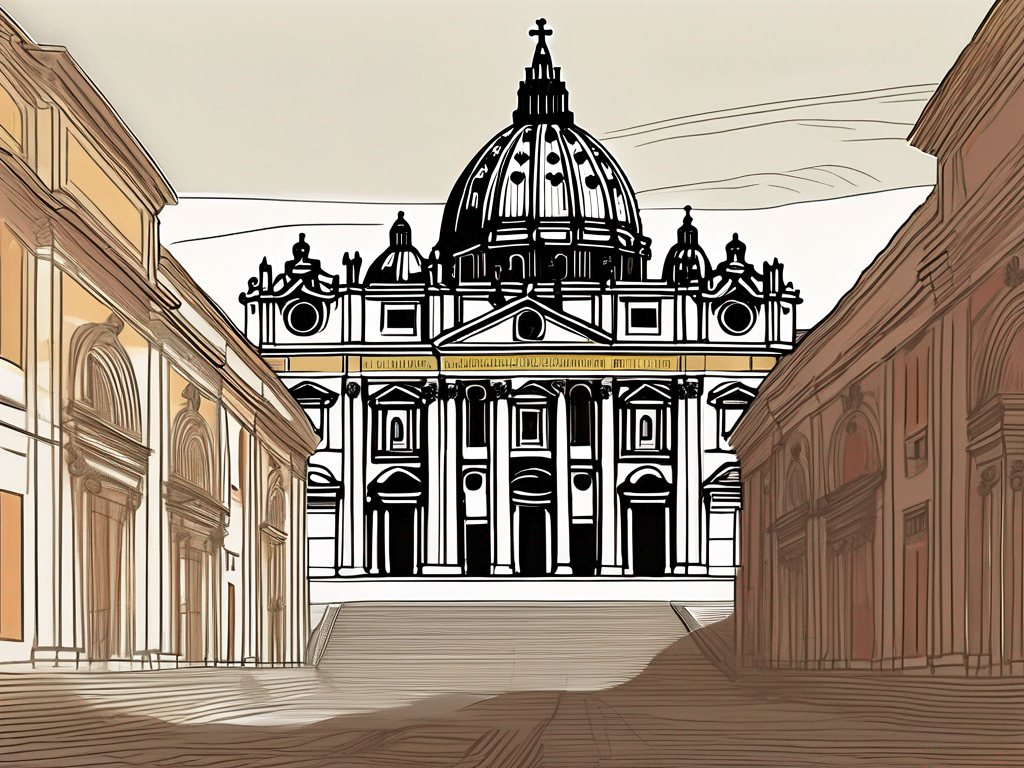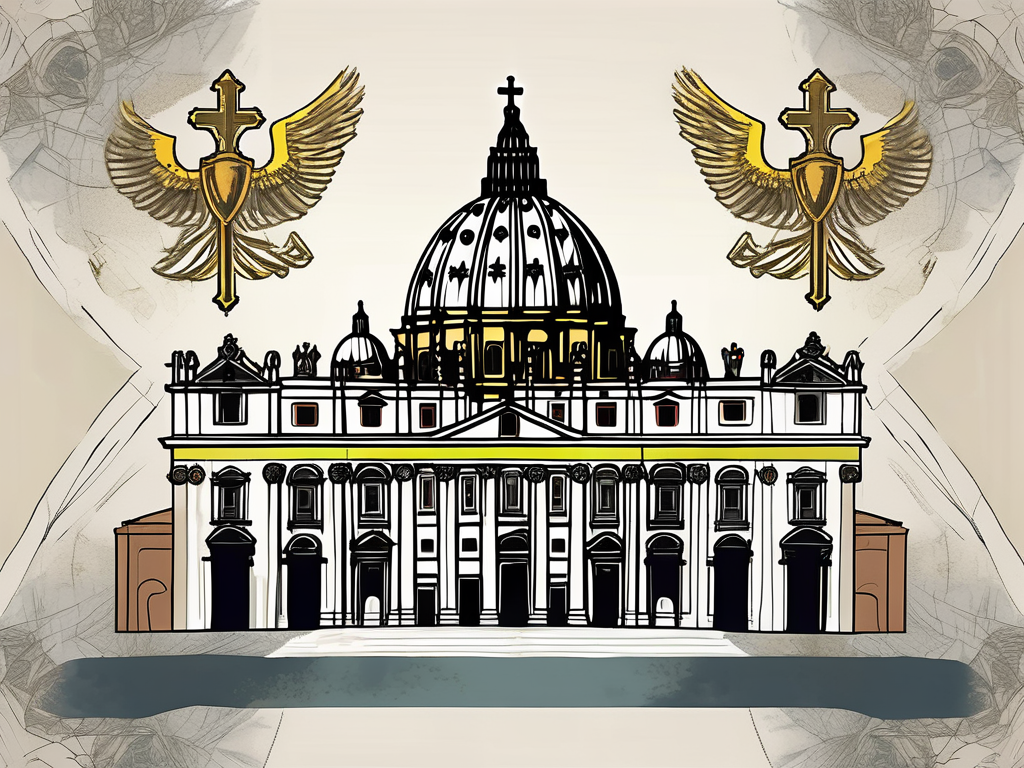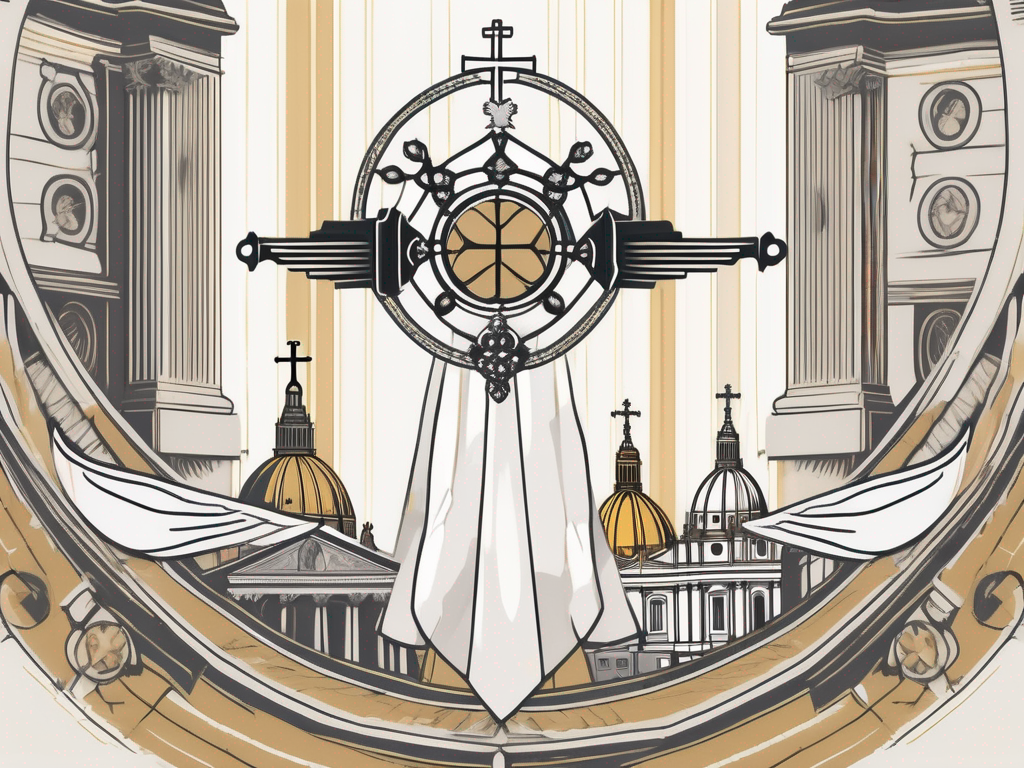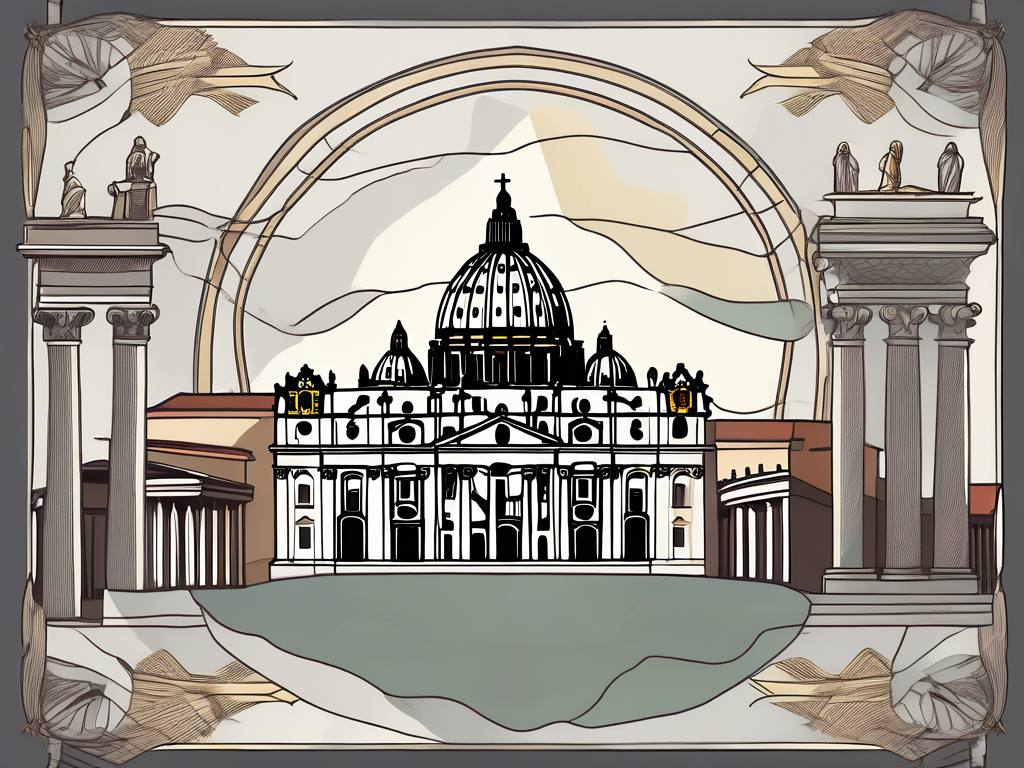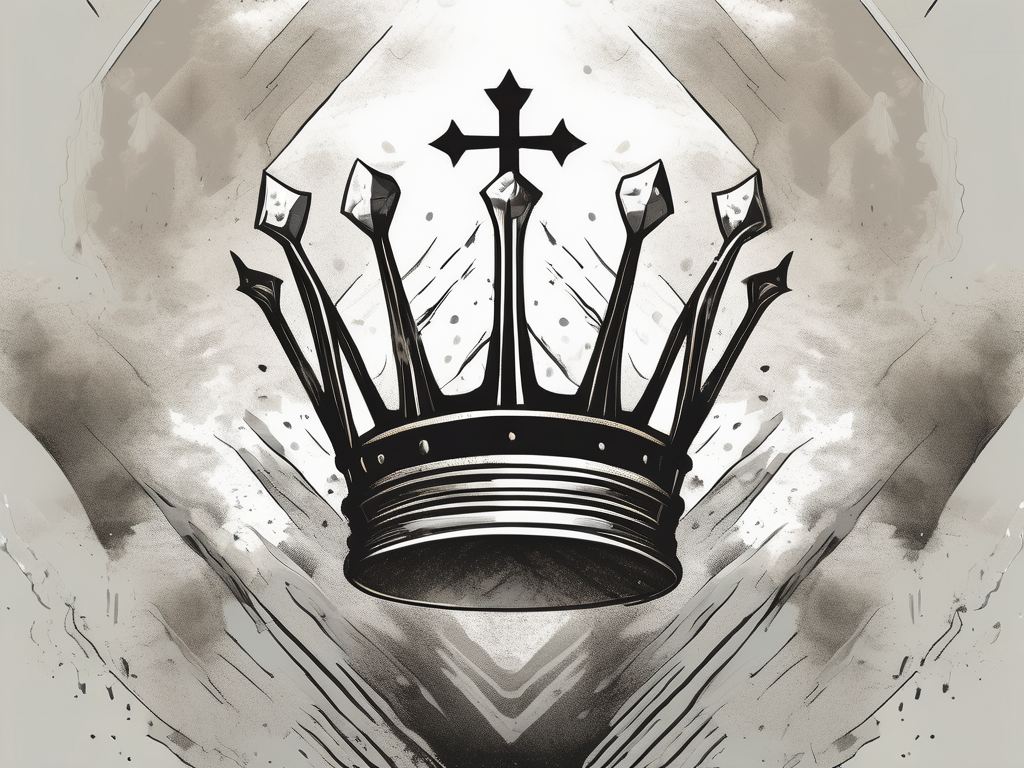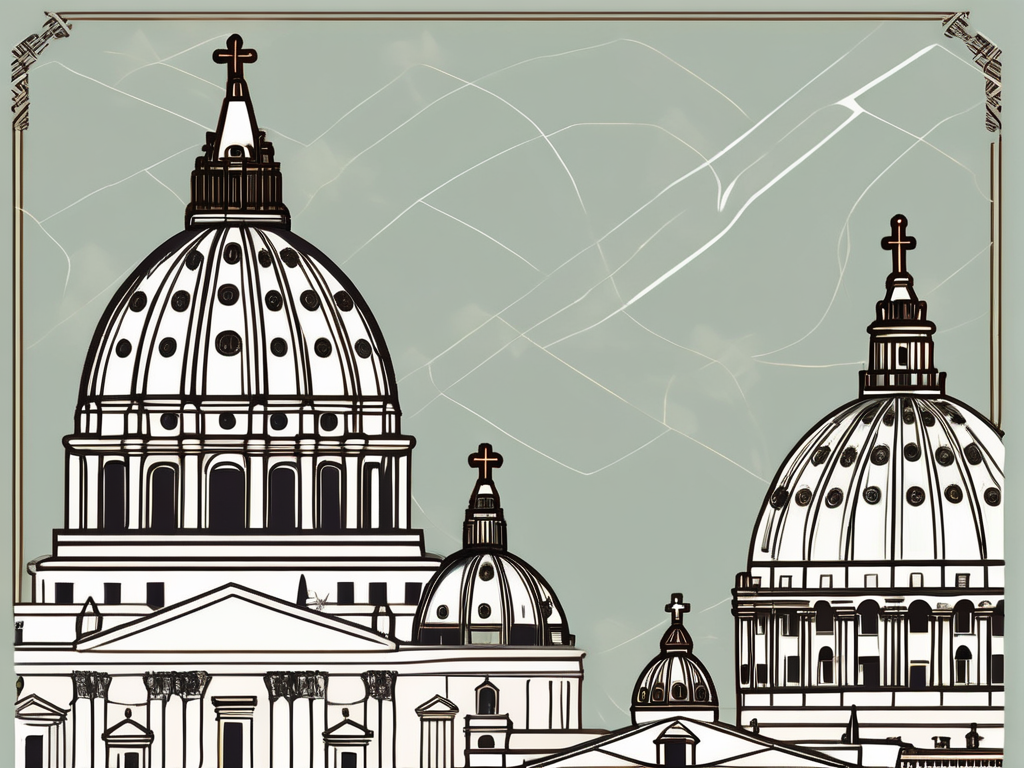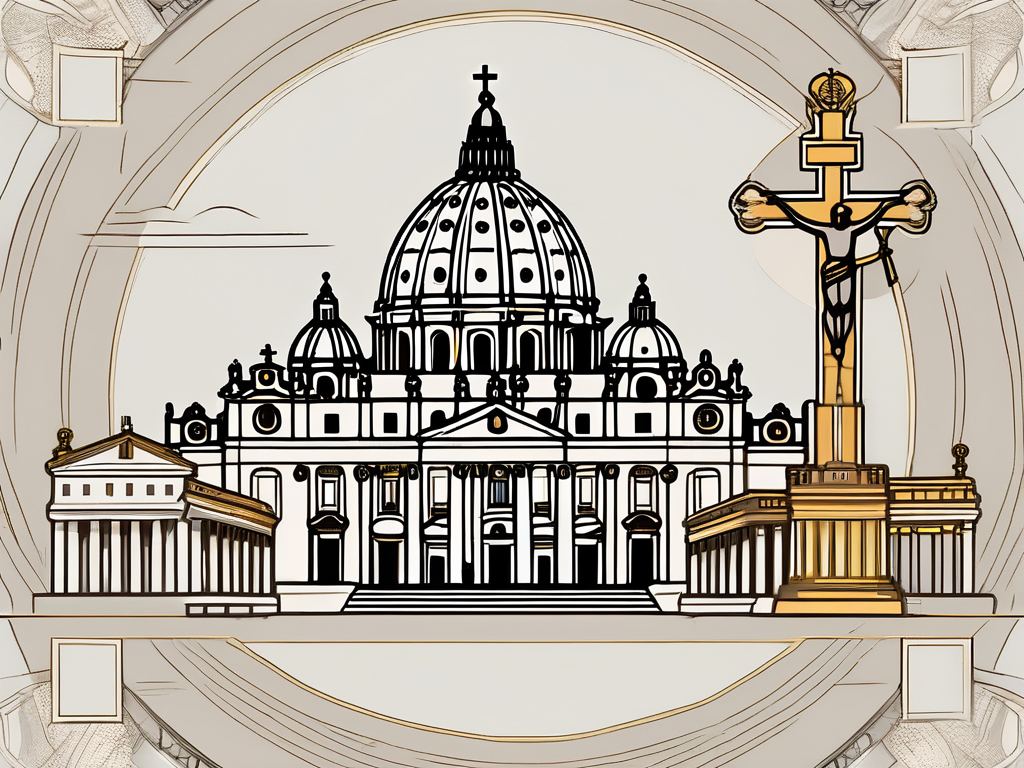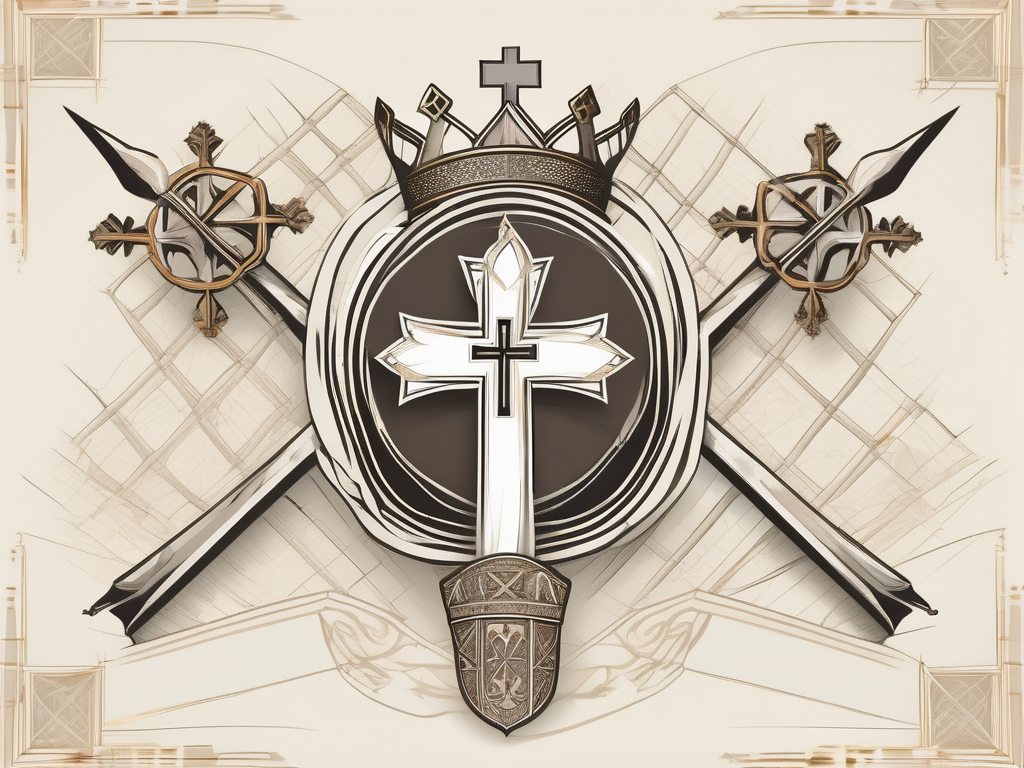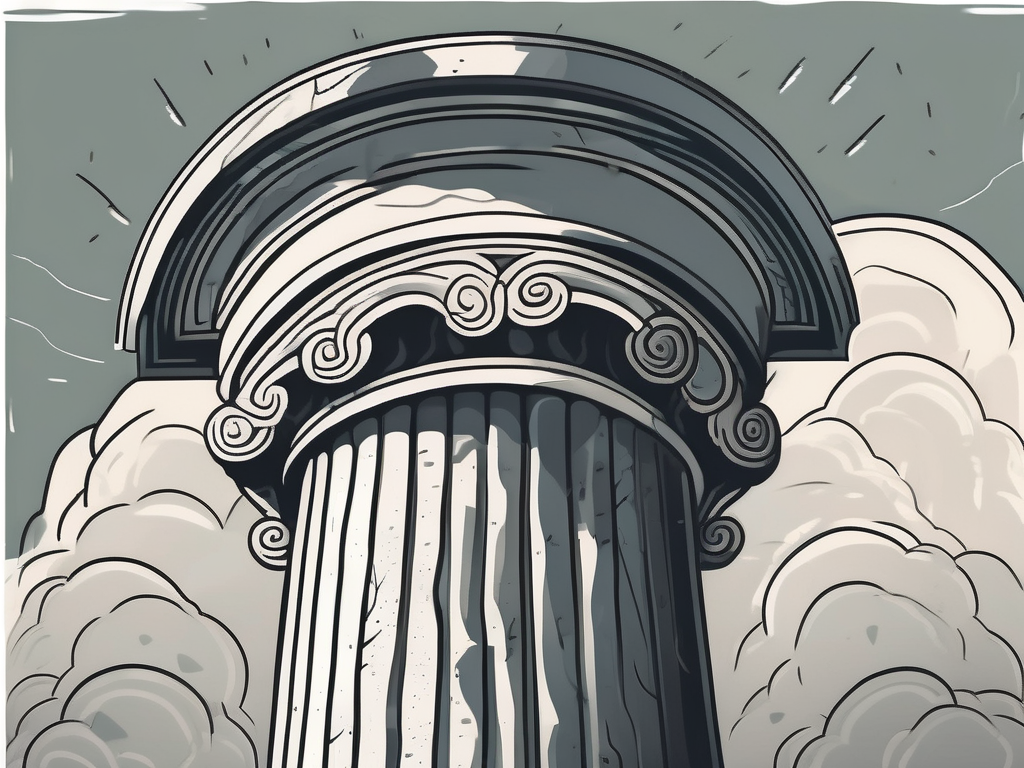Pope Alexander VII, born Fabio Chigi, was a significant figure in the history of the Catholic Church. From his early life and education to his contributions and controversies, he left a lasting impact during his tenure as the head of the Church. Let’s delve into the fascinating life and legacy of Pope Alexander VII.
Early Life and Education of Fabio Chigi
Birth and Family Background
Fabio Chigi was born on February 13, 1599, in Siena, Italy, into a noble Florentine family. His family had a rich history of serving the Church, with his uncle, Cardinal Alessandro Chigi, having previously served as Pope Paul V. This familial connection provided young Fabio with a solid foundation in his religious upbringing.
The Chigi family’s devotion to the Church can be traced back several generations. They were known for their unwavering faith and commitment to the Catholic Church, and their influence within the ecclesiastical circles was significant. From an early age, Fabio was exposed to the inner workings of the Church and the responsibilities that came with such a prestigious lineage.
Growing up in a household that valued piety and religious devotion, Fabio was instilled with a deep sense of reverence for God and a desire to follow in the footsteps of his ancestors. The stories of his family’s contributions to the Church’s mission inspired him and fueled his own aspirations to serve.
Education and Early Religious Inclinations
Fabio Chigi received an excellent education, studying at the University of Siena before continuing his studies in Rome at the renowned Collegio Romano. At the University of Siena, he immersed himself in various subjects, ranging from philosophy to theology, nurturing his intellectual curiosity and expanding his knowledge.
It was during these formative years that his religious vocation became apparent. Fabio’s time at the Collegio Romano exposed him to the teachings of prominent theologians and philosophers, deepening his understanding of Catholic doctrine and strengthening his conviction to dedicate his life to the service of God.
The Collegio Romano, known for its rigorous academic standards and emphasis on spiritual formation, provided Fabio with a nurturing environment to explore his religious inclinations further. Surrounded by like-minded individuals who shared his passion for theology, he engaged in lively debates and discussions, broadening his perspectives and shaping his own theological beliefs.
Fabio’s time at the Collegio Romano also allowed him to establish connections with influential figures within the Church, who recognized his intellectual prowess and devotion to the Catholic faith. These connections would prove invaluable in his future endeavors and would open doors to various opportunities for him to contribute to the Church’s mission.
Throughout his education, Fabio Chigi’s commitment to his religious calling only grew stronger. The combination of his family’s legacy, his education, and his personal experiences shaped him into a young man ready to embark on a journey of service and leadership within the Catholic Church.
Ascension to Papacy as Pope Alexander VII
In April 1655, Fabio Chigi was elected as the 237th Pope following the death of Pope Innocent X. The conclave, consisting of cardinals from all over the world, convened in the Sistine Chapel to deliberate and select the next leader of the Catholic Church. After days of intense discussions and voting, the cardinals reached a consensus and Fabio Chigi emerged as the chosen candidate. With great humility and a sense of duty, he accepted the immense responsibility that lay ahead.
Taking the name Alexander VII, he sought to honor his predecessor and continue the important work of the Church. The name Alexander carried significant historical weight, evoking the memory of Pope Alexander the Great, who had played a crucial role in shaping the early Christian Church. By adopting this name, Pope Alexander VII aimed to inspire his flock and reaffirm the Church’s commitment to its mission.
Election and Papal Coronation
The election of Pope Alexander VII was a momentous occasion that attracted attention from all corners of the world. The news spread like wildfire, and Catholics everywhere rejoiced at the selection of their new spiritual leader. Pilgrims flocked to Rome to witness the papal coronation, eager to catch a glimpse of the man who would guide them through these tumultuous times.
The coronation ceremony itself was a grand spectacle, filled with ancient rituals and symbolic gestures. The newly elected Pope, dressed in his resplendent white papal robes, ascended the steps of St. Peter’s Basilica to the cheers of the crowd. With solemnity and grace, he received the papal tiara, a symbol of his authority, from the hands of the cardinal deacon. As the tiara was placed upon his head, the air was filled with a sense of anticipation and hope for the future.
Challenges Faced in the Early Years of Papacy
Upon assuming the position of Pope, Alexander VII faced numerous challenges that tested his leadership skills and resolve. Europe was embroiled in political and religious turmoil, and the Catholic Church was not exempt from these tensions. The rise of Protestantism had shaken the foundations of Catholicism, and the Church was grappling with internal divisions and external threats to its authority.
With unwavering determination, Pope Alexander VII set out to address these challenges head-on. He recognized the need for diplomatic finesse and astute political maneuvering to navigate through the complex web of alliances and conflicts that defined the European landscape. His tireless efforts to maintain the influence and integrity of the Catholic Church earned him respect and admiration from both his supporters and adversaries.
In addition to the external challenges, Pope Alexander VII also faced internal struggles within the Church. He sought to reform and strengthen the clergy, promoting education and moral discipline among the clergy members. He emphasized the importance of spiritual guidance and pastoral care, urging priests to be compassionate and accessible to their parishioners.
Despite the daunting nature of these challenges, Pope Alexander VII remained steadfast in his commitment to the Church and its mission. His leadership during these early years of his papacy laid the foundation for the significant contributions he would make in the years to come.
Contributions to the Catholic Church
Architectural Contributions and Urban Development
Pope Alexander VII, a visionary leader with a deep appreciation for art and architecture, left an indelible mark on the Catholic Church during his papacy. Recognizing the profound impact that physical spaces can have on the spiritual experience, he embarked on extensive urban development projects that transformed the face of Rome.
Under Pope Alexander VII’s guidance, Rome underwent a remarkable metamorphosis, becoming a city adorned with iconic landmarks that continue to inspire awe and reverence. The Sistine Chapel, renowned for its breathtaking frescoes by Michelangelo, stands as a testament to the Pope’s commitment to the aesthetic and spiritual enrichment of the Catholic faithful.
But the Pope’s architectural contributions extended far beyond the confines of the Vatican. St. Peter’s Square, with its majestic colonnade that embraces visitors in a warm embrace, is another enduring legacy of Pope Alexander VII’s vision. This architectural masterpiece not only serves as a gathering place for pilgrims but also symbolizes the Church’s embrace of all who seek solace and guidance.
Diplomatic Efforts and Treaties
Alexander VII’s papacy was marked by his tireless efforts in the realm of diplomacy, as he sought to secure peace between warring nations and protect the interests of the Catholic Church. Recognizing the importance of fostering dialogue and understanding, he played a crucial role in mediating conflicts and brokering agreements that aimed to bring stability and harmony to a tumultuous world.
The Pope’s diplomatic endeavors earned him respect not only within the Catholic Church but also in the political sphere. His ability to navigate complex negotiations and bridge divides made him a trusted and influential figure on the international stage. Leaders from across the globe sought his counsel and guidance, recognizing his wisdom and commitment to promoting peace and justice.
Throughout his papacy, Pope Alexander VII worked tirelessly to ensure that the Catholic Church’s voice was heard and its values upheld in the realm of international relations. His diplomatic efforts and the treaties he helped forge served as a testament to his unwavering dedication to the Church’s mission of spreading love, compassion, and understanding.
Controversies and Criticisms
Disputes with Louis XIV
One of the notable controversies during Alexander VII’s papacy was his conflict with King Louis XIV of France. Disagreements over territorial disputes and the control of ecclesiastical affairs strained their relationship, leading to tensions between the Church and the monarchy. However, despite these challenges, Alexander VII stood firm in his convictions and defended the interests of the Church.
Issues with Nepotism
Like some of his predecessors, Alexander VII faced criticism for engaging in nepotism, appointing family members to influential positions within the Church. Although nepotism was a common practice at the time, it tarnished his legacy and sparked debates about the proper use of power and influence within the Church hierarchy.
Death and Succession
Final Years and Death
In May 1667, after a papacy of over ten years, Pope Alexander VII passed away. Despite the challenges he faced during his reign, he left a legacy of steadfast leadership and significant contributions to the Catholic Church.
Legacy and Influence on Successors
Alexander VII’s contributions to the Catholic Church are still felt today. His architectural achievements continue to inspire awe, and his diplomatic efforts set a precedent for future papal administrations. The lessons learned from his controversies have also shaped the Church’s approach to issues of power and nepotism.
Pope Alexander VII’s life and legacy embody the complexities of leadership during turbulent times. His unwavering dedication to the Catholic Church and his visionary contributions have left an indelible mark on its history, ensuring that he will always be remembered as a significant figure in the annals of the papacy.
